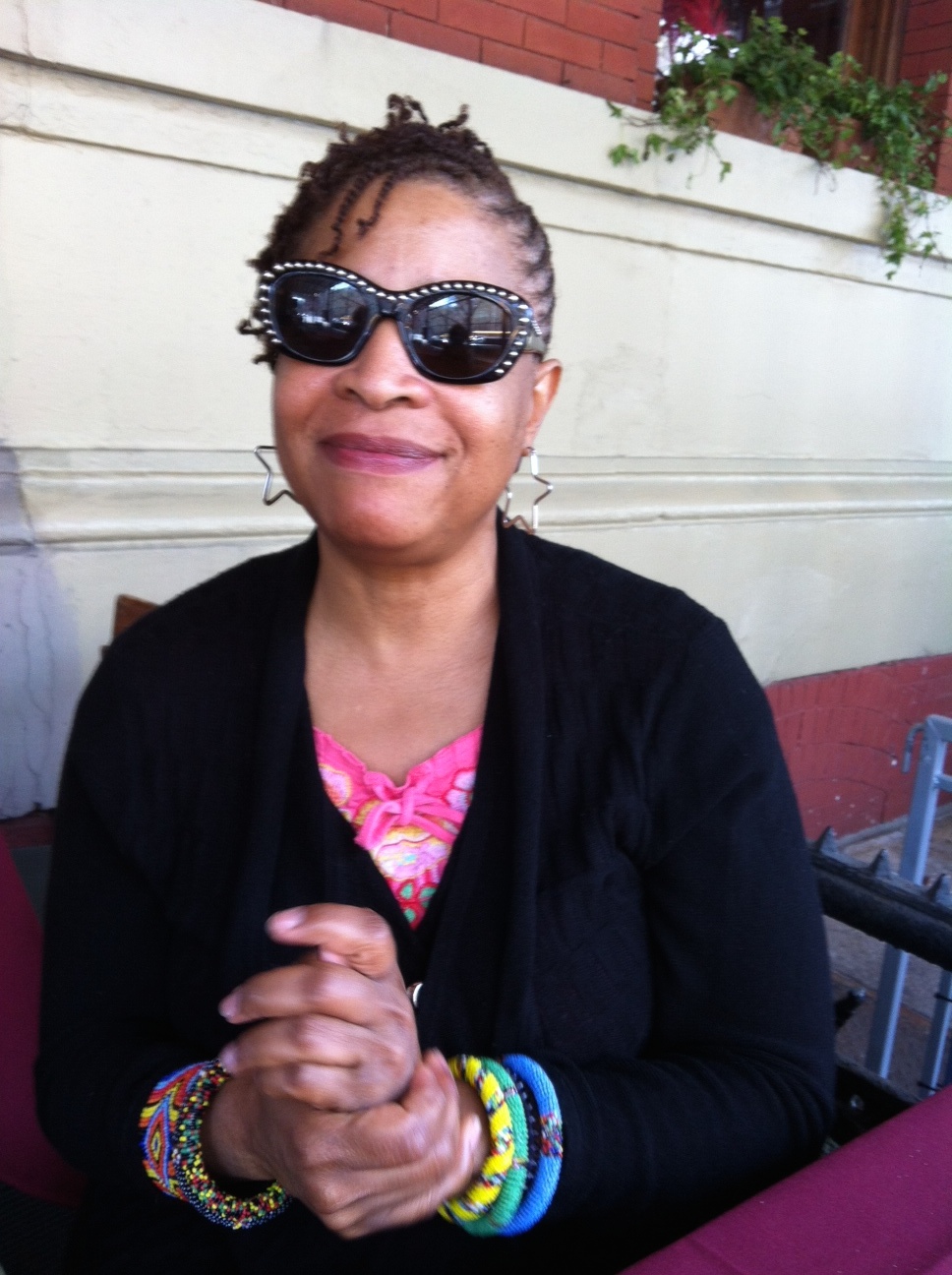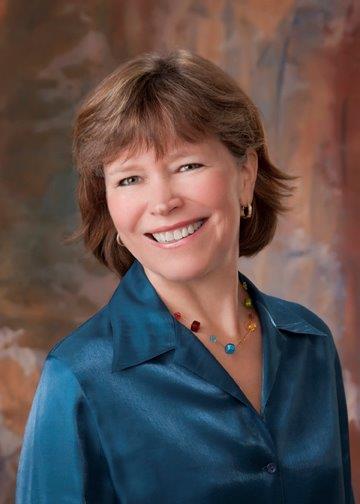Can we be serious activists and voters at the same time?
By Rita Fromholt 
“One of the penalties for refusing to participate in politics is that you end up being governed by your inferiors.” Plato
Much discussion has been generated recently, particularly in social media, about the need for a “revolution” to bring about the critical changes required to create a more sustainable and just society. And correspondingly, whether such a “revolution” would be co-opted by voting and engaging in conventional politics.
So is the act of voting a means of condoning a system we know is fundamentally flawed and incapable of bringing about the radical changes in society that we believe are so necessary? But what if we don’t vote - does that kind of apathy actually make the status quo stronger and allow the anti-progressive 1%’ers to continue to dominate our lives?
It is easy to assume the system is so corrupted and biased towards corporate interests that even “good” (i.e. honest, innovative, visionary, you know what I mean) people, if they manage to get elected, can’t make a difference anymore. In a time of “senate scandals” and crack-smoking mayors, even a political junkie like myself is left shaking her head.
But I am going to argue here that no matter how “radical” you think the necessary changes are, you still gotta vote. And there is no reason to think we can’t be both serious activists and engaged in the political system at the same time. Such attributes are certainly not mutually exclusive.
Many of us are hugely dismayed by how our federal and provincial governments behave - but the reality is, as Canadians, we got the government we deserve. Often majority governments are elected because a lot of progressive people, especially young people, didn’t bother to vote. That’s the hard truth. Why do we still not have a national daycare program or a system to relieve student debt? Because those who get into positions of power don’t see them as priorities. Not enough women, not enough young people.
Voter turnout of young people in the last federal election in 2011 fell to just 38.8% of those aged 18-24, compared to a national average of 61.1%. Even worse was the 2009 BC provincial election that saw only 34% of people 20-24 cast their votes. Municipal elections are likely not much better, with overall voter turnout usually around 40% or less.
I think it was noteworthy at a recent youth climate justice conference in Victoria, Powershift BC, attended by approximately 1,000 people mostly under the age of 25, that there was a noticeable absence of talks and discussions about how to use the political system as part of a campaign strategy. For example, why not include voting, running for office, trying to directly influence political party policy, on the list of possible tactics? There was much talk about what is wrong with the political system, but little regarding to how to fix it or how to create a new power paradigm.
Youth often cite one of their major reasons for not voting is that the candidates don’t campaign on issues that matter to them and that they all sound the same. Well, this of course is a self-fulfilling prophecy because if candidates don’t think the youth will vote for them, they won’t focus on issues that matter to them like student debt, unemployment as well as take strong positions on social and environmental issues. And the situation continues to get worse with each election.
In a democracy, you can get rid of a government you don’t like by organizing and voting to have it defeated in the next election. I know there are lots of reasons why this is not as easy as it sounds, but in fact, is it really that complicated? We need to support “good” people, especially youth and women, who are brave enough to run for public office, and organize to get other people to vote for them en mass. We need to pressure the political parties to work together on issues of common interest, and push for electoral reform including a system of proportional representation. That’s the only way the system is ever going to change. You can protest, occupy, scream, shout, email, Facebook all you want, but without some “good” people in positions of power, you’re not likely to ever be very successful.
One young woman organizer of the Occupy Victoria movement responded to a question on a panel at UVic last year about why she didn’t support a particular city counsellor in the last municipal election who was very supportive of the Occupy Movement by stating, “Oh, I never vote.” There was a collective sigh in the room and she immediately, for me, lost all credibility.
You have to admire people like her, and the Russell Brands of the world, for taking bold positions on important environmental and social justice issues. But those who wear their non-voting status like a badge of honour are not only missing the boat, but can’t even get to the dock. No doubt we should be critical of our out dated first-past-the-post parliamentary system, controlled by old white guys and manipulated by large corporate donations. But we need to get inside the system in order to reform it. It’s certainly not the only tactic to focus on, but no talk of “revolution” and protests is ever going to change it purely from the outside.
 Thursday, January 29, 2015 at 03:04PM
Thursday, January 29, 2015 at 03:04PM  The narrative of the lone survivor and nomadic adventurer has existed for centuries. The story usually goes like this: boy becomes man as his encounter with the vast wilderness humbles him into maturity. Recent films such as 127 Hours and Into the Wild are contemporary versions of this archetype, but one thing hasn’t changed: the agent of the story only represents half of the planet’s population. So I was excited when Tracks, a film based on the book and real-life experience of renowned travel writer Robyn Davidson, caught my attention at the beginning of the summer. Davidson’s international bestseller has been successfully transformed into a refreshing film that takes the ‘Man vs Nature’ theme and places a dynamic female at the helm. Mia Wasikowska brilliantly conveys the complexity of Davidson’s personality: at times she is reserved, often alienating, but also loving, authentic, strong and vulnerable. Disenchanted with 1970s Australian society, Davidson embarks on a journey with four camels and her dog Diggity across 1700 miles of Outback to the Indian Ocean. Sponsored by National Geographic magazine, aided by a friendly photographer and an Aboriginal elder, she struggles both physically and internally to come to terms with her history as well as her present solitude. Rest assured, though, this film is not an overly sensationalized effort, regardless of its wide shots of rippling horizons and pulsating soundtrack. The cinematography is in the service of an understated art film that may have gone under the radar of movie goers. Unlike the attention received by her more epic counterpart in Into the Wild, Davidson is not as concerned with her immortalization. Both protagonists reject the greedy and hypocritical aspects of their societies. However, rather than having messianic goals, Davidson goes down a path of self-reflection and self-acceptance. For that reason, her travel tale forms a striking contrast with our modern Zeitgeist ruled by social media and global connectivity. While Davidson was able to disappear from view, this inspiring film returns her to the public eye and recaptures her unique nomadic adventure. Anyone who appreciates an off-the-beaten-track story will find value in this one.
The narrative of the lone survivor and nomadic adventurer has existed for centuries. The story usually goes like this: boy becomes man as his encounter with the vast wilderness humbles him into maturity. Recent films such as 127 Hours and Into the Wild are contemporary versions of this archetype, but one thing hasn’t changed: the agent of the story only represents half of the planet’s population. So I was excited when Tracks, a film based on the book and real-life experience of renowned travel writer Robyn Davidson, caught my attention at the beginning of the summer. Davidson’s international bestseller has been successfully transformed into a refreshing film that takes the ‘Man vs Nature’ theme and places a dynamic female at the helm. Mia Wasikowska brilliantly conveys the complexity of Davidson’s personality: at times she is reserved, often alienating, but also loving, authentic, strong and vulnerable. Disenchanted with 1970s Australian society, Davidson embarks on a journey with four camels and her dog Diggity across 1700 miles of Outback to the Indian Ocean. Sponsored by National Geographic magazine, aided by a friendly photographer and an Aboriginal elder, she struggles both physically and internally to come to terms with her history as well as her present solitude. Rest assured, though, this film is not an overly sensationalized effort, regardless of its wide shots of rippling horizons and pulsating soundtrack. The cinematography is in the service of an understated art film that may have gone under the radar of movie goers. Unlike the attention received by her more epic counterpart in Into the Wild, Davidson is not as concerned with her immortalization. Both protagonists reject the greedy and hypocritical aspects of their societies. However, rather than having messianic goals, Davidson goes down a path of self-reflection and self-acceptance. For that reason, her travel tale forms a striking contrast with our modern Zeitgeist ruled by social media and global connectivity. While Davidson was able to disappear from view, this inspiring film returns her to the public eye and recaptures her unique nomadic adventure. Anyone who appreciates an off-the-beaten-track story will find value in this one.


